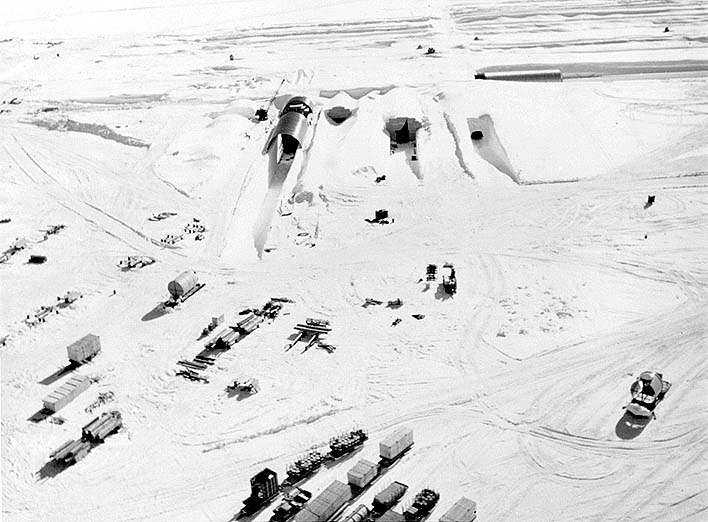A new scandal involving the US in Greenland has bubbled to the surface following the revelations that radioactive waste from a former top secret military base could find its way to the ocean due to the melting icecaps.
The base in question, Camp Century, was established under the ice east of the Thule Air Base in 1959 by the US Army. It used a mobile atomic reactor as an energy source for the around 200 soldiers and researchers who resided there.
The project, labelled Project Iceworm, was abandoned in 1966 with the Americans promising the Danish government it would clean up the site. But they left a lot of low radiation waste and toxic PCBs.
“It’s not a question of if it will happen, but it’s more a question of when,” Dirk van As, a climate researcher from the Geological Survey of Denmark and Greenland (GEUS), told Information newspaper.
“This waste won’t remain covered by the ice forever. If climate change continues, the waste will reach the surface of the ice and led into the ocean.”
READ MORE: ‘Broken Arrow’ meets ‘Erin Brockovich’ in ‘Thulegate’ – at chemotherapists now!
Who will pay?
According to experts, cleaning up the waste would only become a possible option just before the waste is exposed by the melting ice – which is estimated to occur around 2090. But the question that has yet to be uncovered is who will foot the bill?
Denmark’s official post-WWII policy dictates that no atomic weapons should be permitted on Danish territory. That, however, came into question in 1968 when an American B52 bomber carrying four nuclear bombs crashed near the Thule Air base while on a secret mission, sparking an uproar in Denmark.















